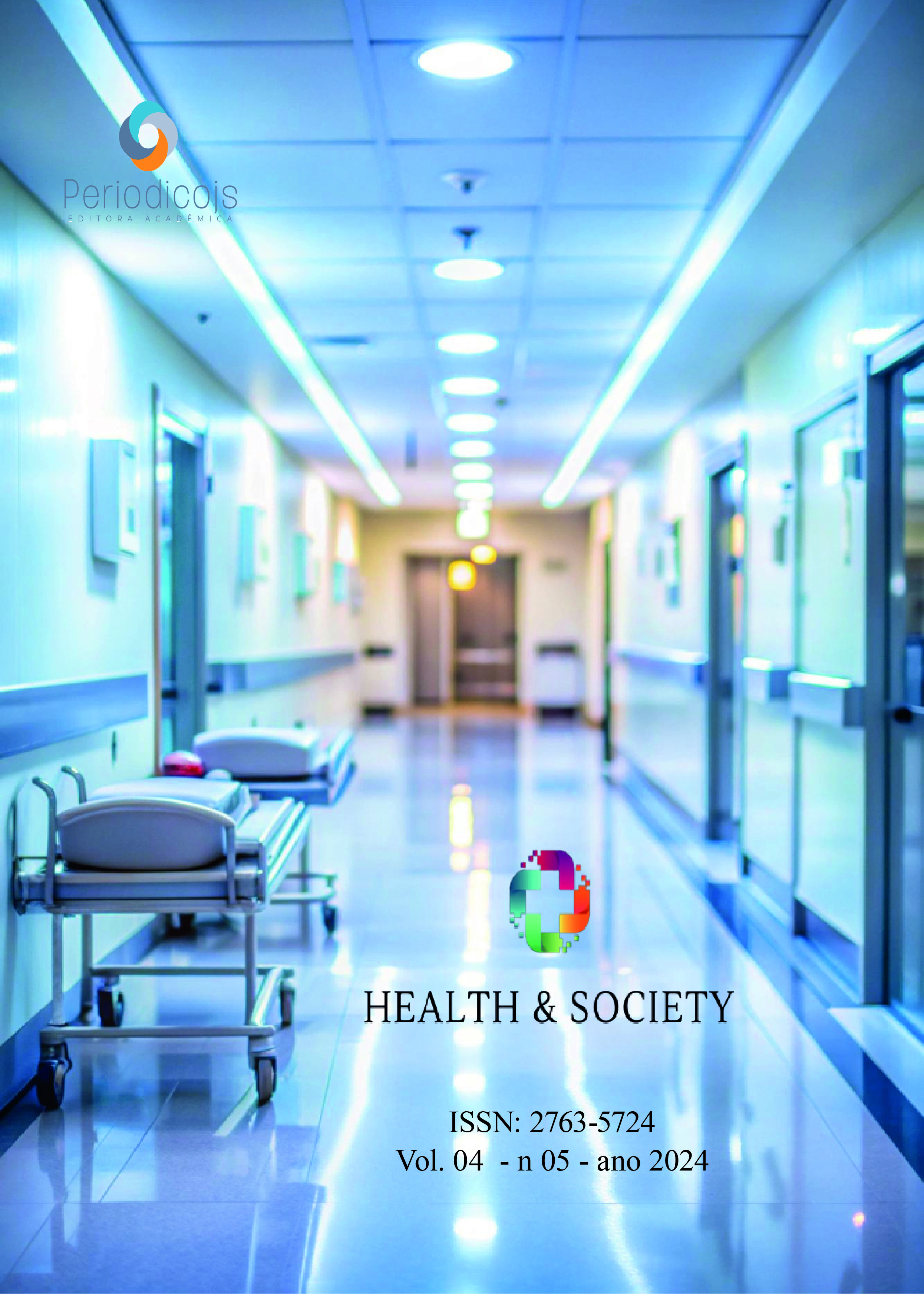Abstract
Laparoscopic surgery has established itself as an innovative and effective approach to treating acute abdominal diseases, revolutionizing traditional surgical practices. With the advancement of medical technologies and the growing demand for less invasive procedures, laparoscopy offers significant advantages, such as reduced postoperative pain, shorter recovery time and lower complication rates. This paper explores recent advances in the laparoscopic technique, highlighting its role in the future of minimally invasive surgery. This paper sets out to explore the main advances in laparoscopic surgery, its applications in the treatment of acute abdominal diseases and the future prospects of this minimally invasive approach, discussing how these developments can positively impact surgical practice and the patient experience. This is a literature review with a qualitative approach, using the PubMed, Google Scholar and Scielo databases. To refine the search, the health descriptors “laparoscopic surgery”, “minimally invasive surgery”, “surgical training”, and “inequalities in surgical access” were applied, with a time frame between 2020 and 2022. The methodology adopted for this analysis involves a comprehensive literature review of recent scientific articles, systematic reviews and clinical guidelines. The study examines innovations such as the use of robotics, advanced surgical instruments and improved visualization techniques, which have broadened the indications for laparoscopic surgery. In addition, the research highlights the importance of continuing education for surgeons, emphasizing the need for specific skills to successfully perform laparoscopic procedures. The data shows that laparoscopy not only improves clinical outcomes, but also promotes a more comfortable surgical experience for patients. Therefore, advances in laparoscopic surgery represent a significant milestone in the approach to acute abdominal diseases, establishing a promising future for minimally invasive surgery. The integration of new technologies and techniques, together with the proper training of professionals, is crucial to maximizing the benefits of this approach. Laparoscopy not only transforms surgical treatment, but also redefines patients’ expectations regarding recovery and quality of life. Continued development in this field promises not only better clinical results, but also a positive impact on the efficiency of health services.
References
MEMON, M. A., et al. (2021). “Technological Advancements in Laparoscopic Surgery: A Review.” Journal of Minimally Invasive Surgery, 24(3), 171-179.
ZHAO, S., et al. (2020). “Comparative Effectiveness of Laparoscopic vs Open Surgery for Abdominal Conditions: A Meta-analysis.” Surgical Endoscopy, 34(5), 2116-2125.
GONZÁLEZ, A. M., et al. (2022). “Training and Access in Laparoscopic Surgery: Addressing the Challenges in Healthcare.” Surgical Clinics of North America, 102(4), 789-804.
SINHA, S. et al. (2020). “Outcomes of Laparoscopic Surgery vs Open Surgery: A Systematic Review.” International Journal of Surgery, 78, 48-54.
CARVALHO, J. A. et al. (2021). “Access to Minimally Invasive Surgery: Addressing Disparities in Surgical Care.” World Journal of Surgery, 45(1), 23-30.
KANG, J. et al. (2021). “Benefits of Laparoscopic Surgery: A Comprehensive Review.” Surgical Endoscopy, 35(4), 1557-1571.
WANG, Y. et al. (2022). “Cost-Effectiveness of Laparoscopic versus Open Surgery for Abdominal Conditions: A Systematic Review.” Health Economics Review, 12(1), 34.
LI, L. et al. (2021). “The Role of Robotic Surgery in Laparoscopic Procedures: An Overview.” Journal of Robotic Surgery, 15(1), 59-67.
ZHOU, Y. et al. (2022). “Simulation Training in Laparoscopic Surgery: A Review of Current Practices.” Surgical Endoscopy, 36(2), 841-852.
BADRAN, A. et al. (2021). “Global Disparities in Access to Laparoscopic Surgery: Challenges and Solutions.” World Journal of Surgery, 45(7), 2101-2109.

This work is licensed under a Creative Commons Attribution 4.0 International License.
Copyright (c) 2024 William Walter Ferro Schultheis, Bruno de Figueiredo Moutinho, Daiany Bromonschenkel De Angeli, Luna Musso Rabelo, Leonardo Gomes Santos, João Marcelo Pacheco Kokis, Luiza Costa Fabris, Mariana Costa dos Santos, Jhennyfer Barcelos Bicalho, Bárbara Wagmacker Barbosa, Lucas Frasson Venturini, Beatriz Rebonato de Souza Ribeiro, Gabriela Silva Pereira, Pedro Paulo Ladeira Junior





